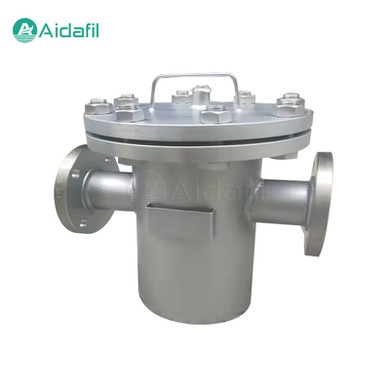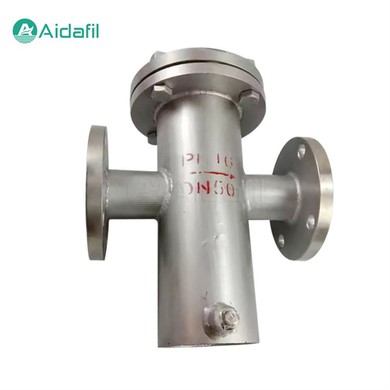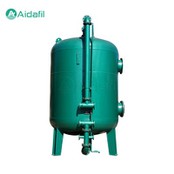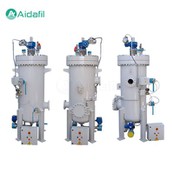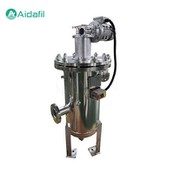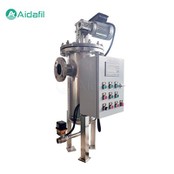
Anti-Rust Stainless Steel Basket Filter
Product Details
The anti-rust stainless steel basket filter, also known as stainless steel basket strainer, plays a crucial role in removing impurities, debris, or unwanted particles from liquids, gases, or slurries to ensure process efficiency, product quality, and equipment protection. Made from robust and corrosion-resistant stainless steel, the anti-rust stainless steel basket filter is versatile, durable, and suitable for a wide range of applications across industries such as chemical processing, food and beverage, pharmaceuticals, water treatment, and petrochemicals.
Construction and Materials
- Basket Design
The heart of a anti-rust stainless steel basket filter is its perforated or mesh basket. The basket typically features a cylindrical shape with a series of precise holes or a mesh lining its walls. These holes or mesh sizes are carefully selected based on the application requirements to trap contaminants effectively without obstructing the flow of the process fluid. The baskets can be easily removed for cleaning or replacement, ensuring continuous operation.
- Material Selection
Stainless steel, particularly grades like 304 and 316, is the material of choice due to its inherent properties. Grade 304 offers good corrosion resistance and is cost-effective, making it suitable for many general-purpose applications. On the other hand, grade 316 provides enhanced resistance to corrosive environments, especially those containing chlorides, making it ideal for marine and chemical processing applications. Both materials are non-toxic and conform to strict hygiene standards, vital for food and pharmaceutical industries.
- Housing and Mounting
The basket is housed within a sturdy, cylindrical casing, which seals tightly to prevent bypass of unfiltered fluid. Depending on the design, these filters can be flanged, threaded, or have a tri-clamp connection for easy integration into existing pipelines. They can be installed either in-line or as a side-stream filtration unit, allowing flexibility in system design.
Parameters
|
Material of housing |
Cast iron, carbon steel |
Stainless steel |
|
Material of strainers |
Stainless steel |
|
|
Material of seal components |
Oil-resistant asbestos, flexible graphite, PTFE |
|
|
Working temperature |
-30 ~ +380°C |
-80 ~ +450°C |
|
Filtration precision |
10 ~ 300 meshes |
|
|
Nominal pressure |
0.6 ~ 6.4 Mpa (150Lb ~ 300Lb) |
|
|
Connection |
Flange, welding |
|
Working Principle and Operation
- Filtration Process
As the fluid enters the filter housing, it passes through the perforations or mesh of the basket. Solid particles larger than the hole size or mesh aperture get trapped, while the cleaned fluid flows out through the outlet. This physical separation process ensures that only fluids meeting the required purity standards exit the filter.
- Maintenance and Cleaning
Regular maintenance, including cleaning and inspection of the basket, is crucial to maintain optimal performance. Most stainless steel basket filters are designed for easy access, allowing for straightforward basket removal, cleaning (either manually or with cleaning solutions), and reinstallation. For continuous processes, duplex or multi-basket arrangements are employed, allowing for continuous operation while one basket is offline for cleaning or replacement.
Key Benefits
- Durability and Corrosion Resistance
Stainless steel's inherent strength and resistance to rust and corrosion make these filters highly durable, even in harsh operating conditions. This longevity reduces maintenance costs and minimizes downtime.
- Hygienic and Sanitary
In food, beverage, and pharmaceutical applications, the non-porous nature of stainless steel combined with smooth surfaces facilitates effective cleaning and sterilization, complying with strict hygiene standards.
- Versatility
With customizable basket designs and mesh sizes, stainless steel basket filters can be tailored to suit a broad spectrum of filtration needs, from coarse filtration of large particles to fine filtration for more stringent purity requirements.
Applications
- Water Treatment: Removing suspended solids from raw water or wastewater.
- Chemical Processing: Filtering process fluids to protect downstream equipment from contamination.
- Food and Beverage: Ensuring product purity by removing foreign particles during processing.
- Pharmaceuticals: Critical filtration stages to meet high purity standards.
- Petrochemicals: Pre-filtration of process fluids and lubricants to prolong equipment life.
- Agriculture: Filtering irrigation water to prevent clogging of emitters or sprayers.
FAQ
1. Q: What is the function of a filter?
A: The main function of a filter is to remove solid particles, impurities, and harmful substances from liquids or gases, in order to achieve purification, clarification, and protection of equipment.
2. Q: How to choose a suitable filter?
A: When choosing a filter, factors such as the properties of the material being filtered (e.g., viscosity, temperature, corrosion), required filtration accuracy, processing capacity, operating pressure and medium, as well as the type, material, size, and installation method of the filter should be considered.
3. Q: What is the working principle of a filter?
A: The working principle of a filter mainly relies on physical screening, deep interception, absorption, or chemical reactions to remove impurities or harmful components from the material being filtered.
4. Q: How to maintain and care for a filter?
A: Maintenance of filters includes regular cleaning or replacement of filter elements, inspection of seals and fasteners, maintaining stable operating pressure, and avoiding overloading. Specific methods should be referenced from the filter's instruction manual and maintenance guides.
5. Q: What is the service life of a filter?
A: The service life of a filter depends on its working environment, processing volume, and filtration accuracy. Generally, when the filter's pressure drop reaches a certain value or the filtration effect decreases significantly, it needs to be replaced or cleaned.
6. Q: What should be paid attention to during filter installation?
A: During filter installation, attention should be paid to the directionality, ensuring that the fluid enters and exits from the correct ports. Also, the piping system should be cleaned before installation, and the filter should be securely fastened and sealed as required by the instructions.
7. Q: What is the replacement cycle for filters?
A: The replacement cycle for filters depends on their working conditions and filtration requirements, and is usually indicated by pressure difference indicators or timers. When the filter's pressure drop reaches the set value or the filtration effect decreases, it should be replaced in a timely manner.
Why Choose Us
· Professional manufacturer with many years' experience
· Good quality with competitive price
· OEM & ODM are welcome
· Various payment items are acceptable
· Good service by experienced manager
AIDA Philosophy
1. Management Concept:
· Satisfy the customers' demand --- Touch customers, trust with our products and services
· Make employees happy --- Pursue higher material and spiritual happiness
2. Company Mission:
· Focus on customer needs, provide best filtering solution
· To be the lifelong partner with customers
3. Corporate Vision:
· Become a global purification leadership brand
4. Values:
· Customer: Pursue the ultimate experience, enjoy excellent quality
· Team: Trust, responsibility, growth, win-win
· Work: Simple, sincere, efficient, dedicated
Hot Tags: anti-rust stainless steel basket filter, China, factory, price, buy, 100 micron hydraulic oil filter element, PN16 basket strainer, sintered wire mesh for purification, Inline Filter Element, Coalescing Filter Element, 10 micron oil filter element

